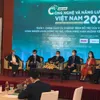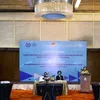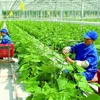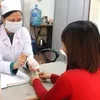Webinar shares experience in auditing water resources management in Mekong River basin
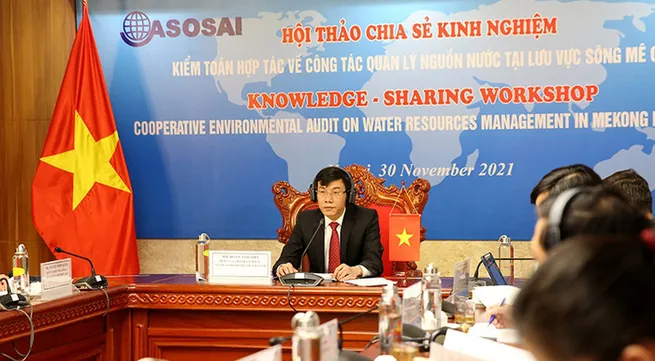
The event was attended by officials from the supreme audit institutions (SAIs) of Thailand, Myanmar, India, Indonesia, Malaysia, Nepal, Mongolia, Bhutan, Pakistan, Japan, and Oman.
Opening the seminar, Deputy Auditor General of Vietnam Doan Anh Tho said in 2018, the 14th Assembly of the Asian Organisation of Supreme Audit Institutions (ASOSAI) adopted the Hanoi Declaration on “Environmental Audit for Sustainable Development”, which covers promoting knowledge sharing in the ASOSAI community, developing environmental auditing capacity of member SAIs, realising the Sustainable Development Goals (SDGs), and dealing with global environmental challenges.
The Hanoi Declaration has become an important document on ASOSAI’s strategic vision for the next period of implementing the UN 2030 Agenda for Sustainable Development, he noted.
To achieve the targets set in this declaration, the SAV coordinated with the SAIs of Myanmar and Thailand, with support from the SAIs of Malaysia and Indonesia, to conduct the cooperative environmental audit on water resources management in the Mekong River basin. Despite impacts of the COVID-19 pandemic, the audit has come to fruition.
Results show that the governments of Vietnam, Myanmar, and Thailand have paid attention to and made efforts to manage water resources of the Mekong River in tandem with the implementation of the SDGs.
However, the audit also pointed out the degradation of the river’s water resources, as well as the negative impacts on the ecology, livelihoods, and life of people in the three countries.
Via the audit, the three SAIs issued warnings about the risks and consequences of water resources degradation in the Mekong River. They also proposed many useful and feasible solutions to the governments and relevant agencies of their respective countries.
At the webinar, participants looked into issues of common concerns such as the application of remote sensing technology to audits, communications about audit results, the settlement of trans-boundary issues related to water resources in the Mekong River basin, and funding for the settlement of outstanding problems pointed out by the audit.
